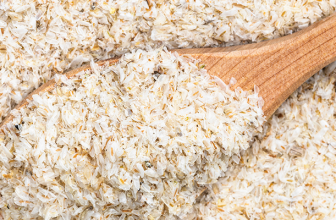
INTRODUCTION
For people with IBS, the low-FODMAP diet is an effective way to manage symptoms and improve quality of life. It’s a temporary treatment that requires careful monitoring by a qualified health professional.
FODMAPs are carbs (sugars) normally found in many
common foods.
FODMAPs are short for Fermentable Oligosaccharides, Disaccharides, Monosaccharides and Polyols.They’re a type of carbohydrate that’s poorly absorbed in the small intestine and may cause digestive symptoms like bloating and gas. Foods with FODMAPs include wheat, rye, onions, garlic and beans.
They can be poorly absorbed by some people, resulting in digestive problems.
FODMAPs are poorly absorbed by some people, resulting in digestive problems. They can be poorly absorbed by some people and result in digestive problems. The FODMAPs are fermented in the colon, causing gas and bloating.
FODMAPs (Fermentable Oligosaccharides Disaccharides Monosaccharides And Polyols) are sugars that may not be well digested or absorbed by some individuals due to their small molecular size and hence may lead to symptoms of irritable bowel syndrome (IBS).
A low-FODMAP diet is a temporary treatment for some forms of irritable bowel syndrome.
A low-FODMAP diet is a temporary treatment for some forms of irritable bowel syndrome. FODMAPs are carbohydrates (sugars) normally found in many common foods. They can be poorly absorbed by some people, resulting in digestive problems.
It’s important to note that this diet doesn’t cure IBS or other digestive conditions; it only helps manage symptoms and make them more bearable. The goal is to reduce gas and bloating, as well as pain and diarrhea caused by eating certain foods. While you’re on the diet, your health care provider will likely suggest other treatments to help relieve your symptoms further—like probiotics or fiber supplements—and a modified lifestyle plan based on your own needs and preferences.

In most cases, you need to consult with a qualified health professional to ensure the diet is safe for you and will be effective.
If you have IBS, it is important to consult with a qualified health professional before starting a low-Fodmap diet. This is because there are some foods that may not be considered high in FODMAPs but can cause problems for people with IBS. For example, garlic contains a sugar called fructans that some people with IBS are sensitive to. Therefore if you are not sure whether the diet will suit your needs, ask your doctor or see if they know of any local dietitians who specialize in low FODMAP diets and could help you develop your own plan.
Low-FODMAP eating can be complicated, especially at first, so you need to ensure you’re being properly monitored for efficacy and safety.
Low-FODMAP eating can be complicated, especially at first, so you need to ensure you’re being properly monitored for efficacy and safety.
The low-FODMAP diet is a temporary diet. It’s not a cure for IBS or any other GI condition. If you have been diagnosed with IBD, Crohn’s disease or ulcerative colitis it’s important that your healthcare team provides medical guidance while following this diet and beyond.
FODMAPs seem to be a factor in IBS, but not all FODMAPs affect all people with IBS.
FODMAPs seem to be a factor in IBS, but not all FODMAPs affect all people with IBS. Some people may not need to follow a low-FODMAP diet at all, while others may need to follow it for a longer period of time than others.
If you have been diagnosed with IBS and are experiencing symptoms such as bloating, gas or pain after meals (and especially after eating certain foods), it’s worth consulting with your doctor about trying this way of eating. The low-FODMAP diet has been shown to improve symptoms in many people who suffer from irritable bowel syndrome (IBS).
Conclusion
Hopefully, you now have a better understanding of what FODMAPS are and how they can affect your health. As we’ve discussed, the low-FODMAP diet is not only a temporary treatment for some forms of irritable bowel syndrome but also an excellent way to help manage symptoms and improve your quality of life. If you’re considering trying it out, be sure to talk with your doctor first so they can help guide you through this process safely!







